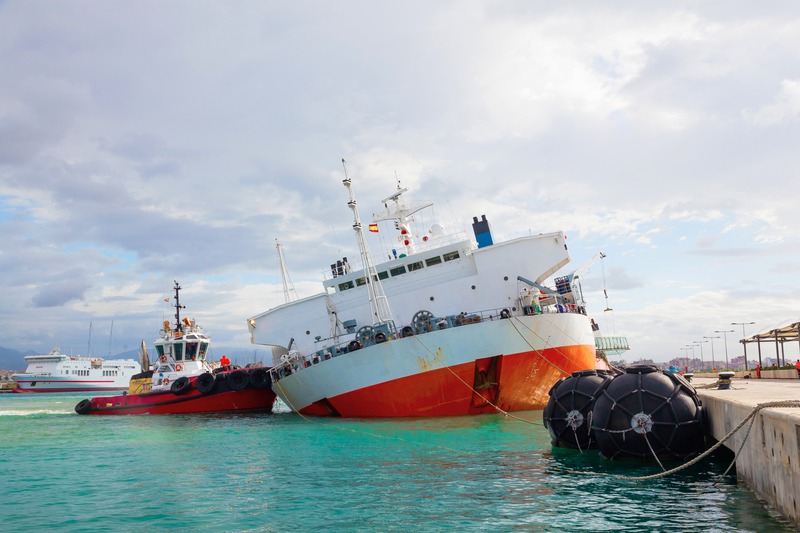What Should I Do After a Maritime Accident

Finding yourself caught up in a maritime accident can be overwhelming and confusing. Whether you’re a worker or a passenger, knowing the right steps to take after such an accident is vital. Not only does it help protect your health and safety, but it also plays a significant role in safeguarding your rights. In this article, we’ll address some of the most pressing concerns people have right after a maritime accident and offer a straightforward guide on what to do. We’ll cover handling medical needs, documenting events, and understanding your legal options.
Immediate Actions to Take
First and foremost, ensuring your safety and well-being is critical. Here’s what you should focus on immediately following the incident:
-
Seek medical attention: Even if you feel alright, getting checked out by a medical professional is crucial. Some injuries might not be apparent immediately.
-
Report the accident: Notify the ship’s captain or management as soon as possible. Official reports are essential for any future claims.
-
Document everything: Take photographs of the accident scene, your injuries, and any machinery involved. Record any details you remember.
-
Collect contact information: Gather details from fellow passengers or crew members who witnessed the event.
-
Do not sign anything: Until you’ve consulted with a professional, refrain from signing any documents provided by the responsible parties or their insurers.
Understanding Maritime Laws
Maritime law governs incidents that occur on navigable waters, and it’s different from laws that apply on land. This distinction can influence how your case is handled, making it important to understand your rights after an accident. Under maritime law, workers may be entitled to compensation for injuries sustained, while passengers might have rights depending on the circumstances of the accident. Consulting with an expert familiar with maritime law can help elucidate these rights and options.
Importance of Legal Assistance
Given the complexities of maritime law, having access to professional guidance can make a significant difference. When accidents occur on the water, understanding who to turn to is crucial. This is where Louisiana personal injury lawyers come into play. Their expertise is invaluable in situations like maritime accidents, as they assist individuals by evaluating claims, determining potential compensation, and handling negotiations with insurance companies. Well-versed in the nuances of maritime claims, personal injury lawyers offer valuable insights into the process, ensuring that victims receive the fairest settlement possible.
Gathering Evidence and Documentation
It’s essential to gather as much evidence as possible. Detailed documentation can significantly bolster any legal claims arising from the accident. In addition to photographs and witness accounts, maintain any receipts or medical records pertaining to your injuries. This information can help establish the sequence of events, the severity of injuries, and the impact on your life.
-
Photographic evidence: Capture images from multiple angles.
-
Official reports: Obtain copies of any reports filed regarding the incident.
-
Medical records: Keep track of treatment dates, diagnoses, and medical advice.
-
Witness statements: Whenever possible, have written accounts from those who saw the event.
Understanding Your Rights
The specific rights and compensation you’re entitled to can vary, especially for maritime workers as opposed to passengers. For maritime employees, compensation might include medical expenses, lost wages, and other job-related benefits. Conversely, passengers’ rights might be influenced by the ticket agreement and the details of the incident. Reaching out to Louisiana marine and diving accident lawyers can be beneficial, providing an avenue for tailored advice and support through the legal process.
Moreover, for workers or passengers with concerns about the accident’s long-term effects, exploring ongoing support options is advisable. Specialists in maritime law often work in conjunction with medical professionals to ascertain the accident’s full impact and ensure sustained support for victims.
Preparing for Potential Legal Actions
If you’ve considered filing a legal claim, understanding the procedure and what it entails is beneficial. Typically, this involves an in-depth evaluation of the incident details, collecting extensive documentation, and working with a lawyer to file your claim. It may also involve negotiating settlements with the parties involved or preparing for a potential court case if no settlement is reached. Being proactive and organized during this period can be incredibly advantageous.
In cases involving specific types of incidents, such as those related to railroads, specialized legal expertise becomes even more important. Consulting with professionals such as Louisiana railroad accident lawyers can further guide individuals through potential intricacies, especially if there are overlapping interests in case of accidents involving different modes of transport or environments. This integrated legal approach can be crucial in ensuring a comprehensive claim process that fairly addresses every aspect of the accident.
Emotional and Psychological Support
The emotional aftermath of a maritime accident can often be overlooked. However, addressing the psychological impact is just as important as managing physical injuries. It’s normal to feel shaken or anxious after such an event and several resources can help. Seeking support from counselors or therapists, joining support groups, or confiding in trusted friends or family members can offer vital emotional comfort and stability during these challenging times.
-
Therapeutic support: Consider professional counseling or therapy services.
-
Support groups: Connect with others who understand the experience.
-
Open communication: Share feelings and thoughts with trusted peers.
-
Self-care practices: Engage in activities that promote relaxation and well-being.
Final Thoughts
Experiencing a maritime accident can be daunting, but knowing how to respond can make a significant difference. Prioritize your health, understand your legal rights, and consider seeking professional guidance to navigate the complexities of maritime law effectively. Documenting the event thoroughly and seeking emotional support are additional steps that can aid recovery. With these steps in mind, individuals can navigate the aftermath of such incidents with confidence and clarity.



